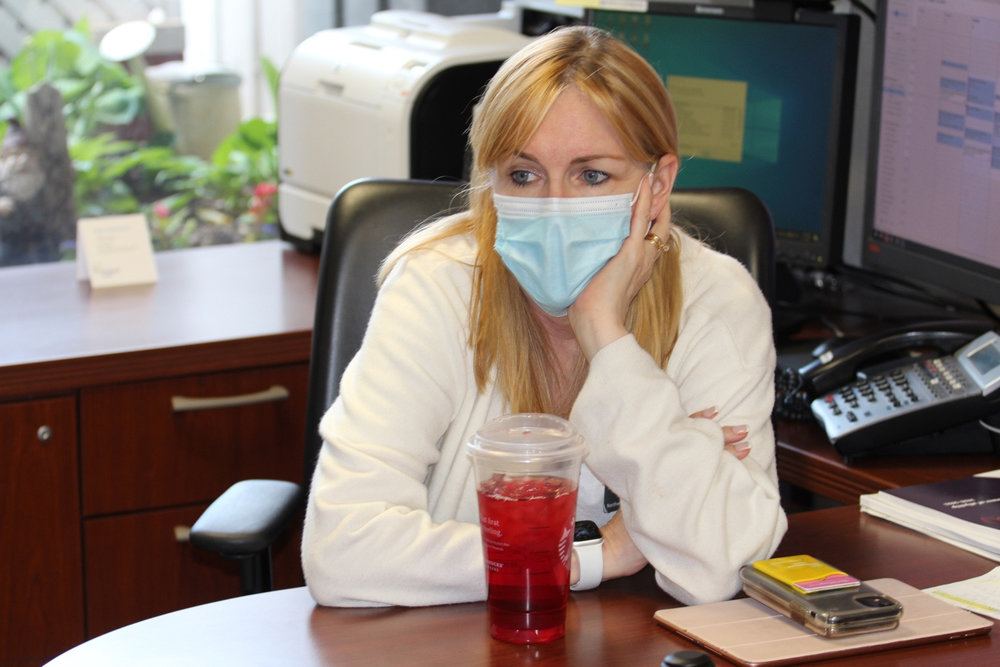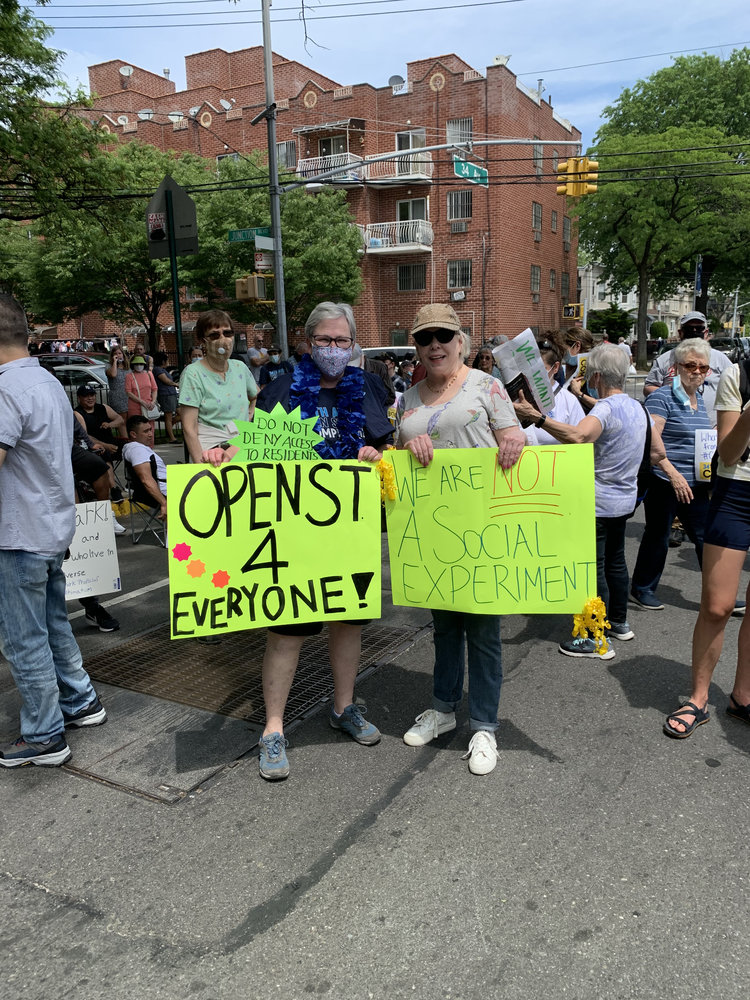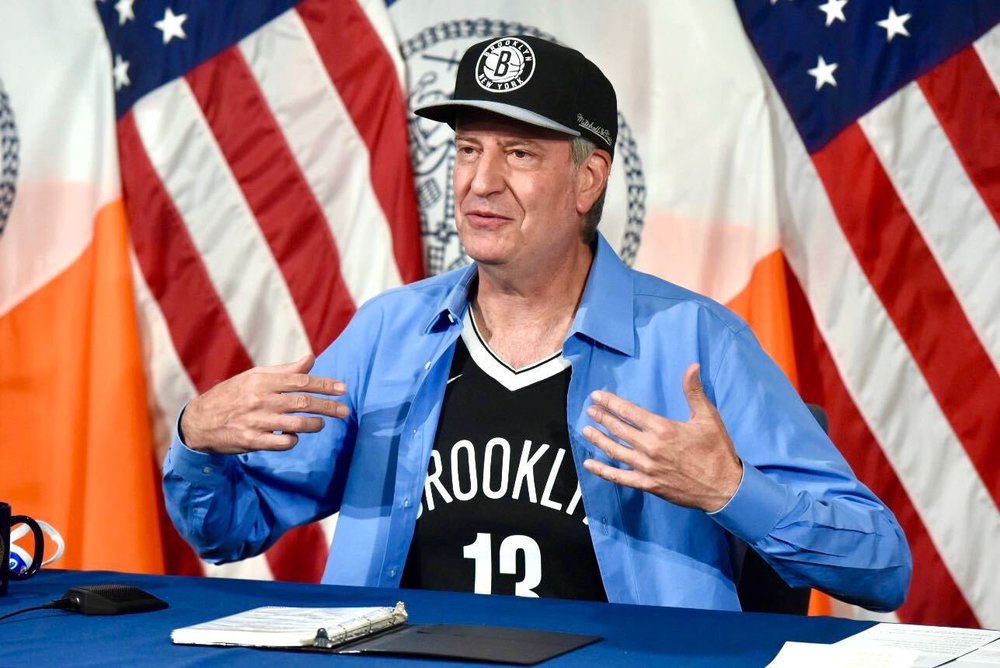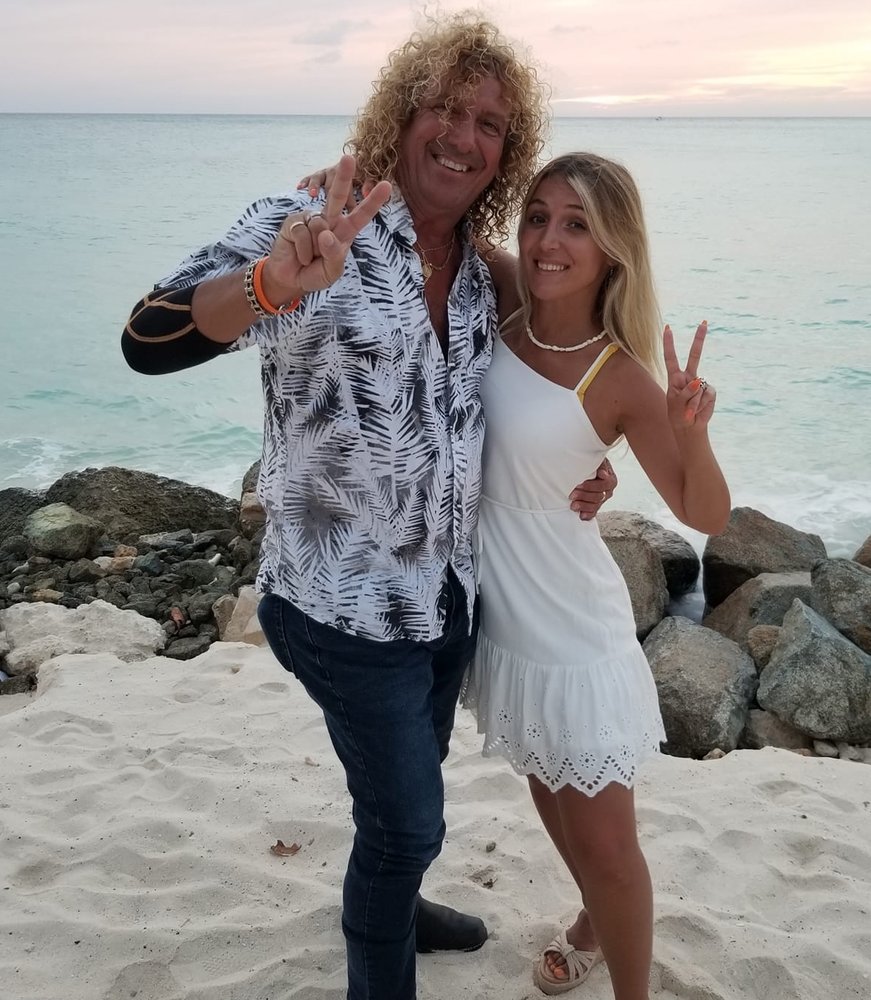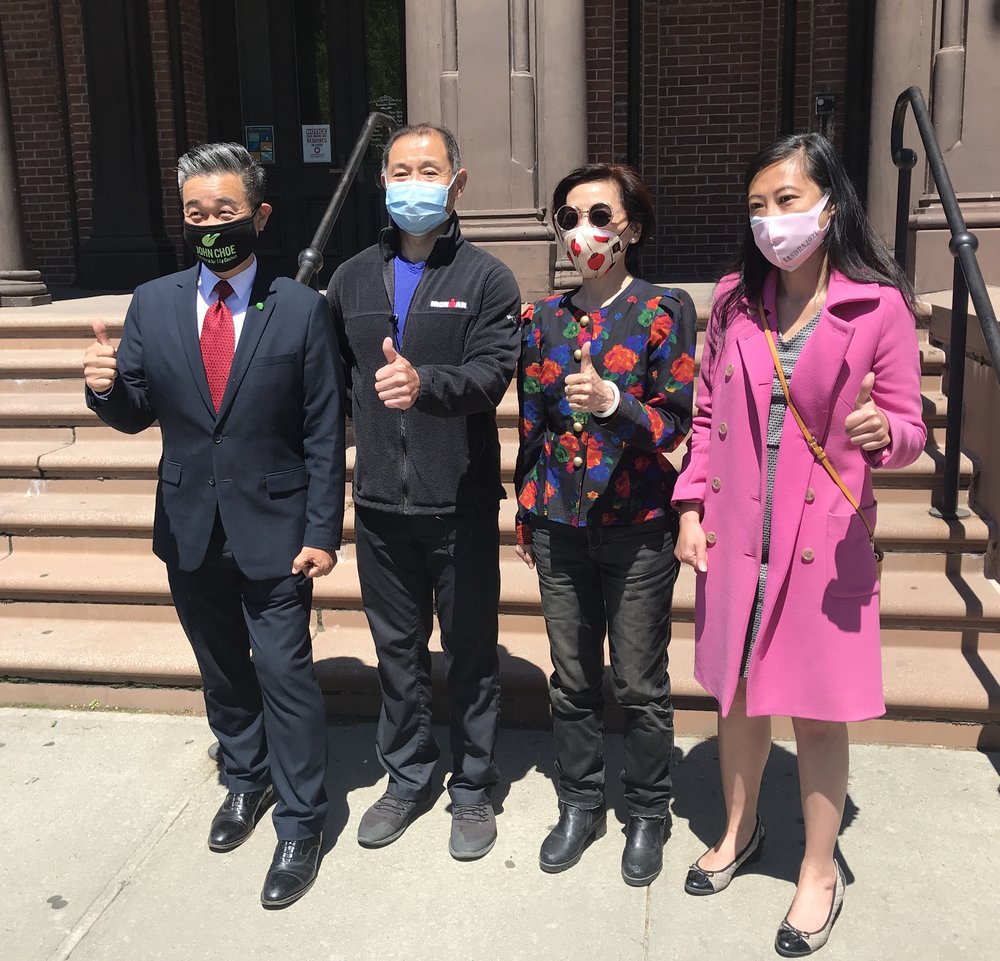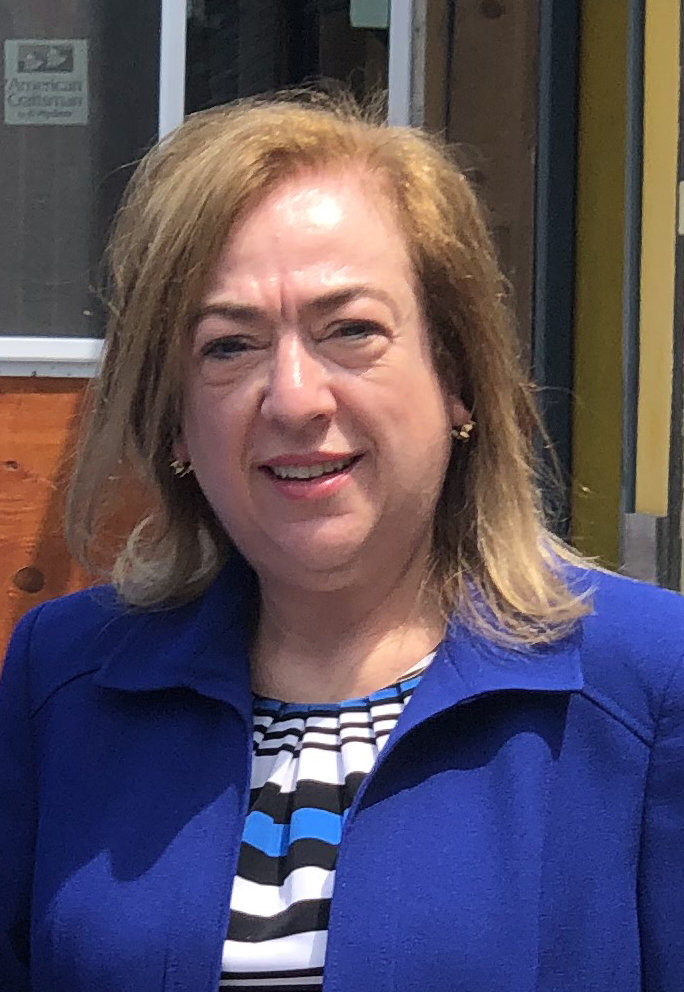Amato, Chain to be honored at Forest Hills Memorial Day ceremony
ER director recalls first wave of COVID cases
On Sunday, May 30, Teresa Amato will be honored at the Forest Hills Memorial Day Ceremony in Remsen Park.
Selected as one of this year’s grand marshals for her service to the community during the height of the COVID-19 pandemic, she is the director of the Forest Hills Emergency Room Department and a proud mother of six.
In March of last year, Forest Hills was hit with the first wave of coronavirus cases. While other hospitals in Northwell Health’s network saw a decrease in patients at the onset of the pandemic, for Long Island Jewish in Forest Hills it was the exact opposite.
Typically, the emergency room treats about 100 patients per day, but in March the hospital was taking on nearly 250 patients each and every day. Nearly all of them needed to be treated for coronavirus.
“At the height of it, 95 percent of the patients in the hospital had COVID,” Amato said. “The only sound you could hear in the department was the hissing of the oxygen.”
As patients showed up, Amato said the hospital had to quickly pivot to load balancing as it reached its capacity. Because there were no open beds for patients at Long Island Jewish, they were sent to other nearby hospitals in Northwell’s network.
Amato remembers the “cavalry” of ambulances that helped transfer patients, idling outside the hospital in a line that was so long it wrapped around the entire block.
“You have to have three things to take care of patients,” she said. “You need the space, the staff, and the equipment. We just ran out of space.”
For the first few weeks the entire hospital was running on adrenaline, according to Amato. However, she started to notice signs of fatigue among the staff as time went on.
“Everybody was laser-focused in the beginning,” Amato said. “But as the bombs keep coming and you don’t get sleep and you start to understand the danger, that constant adrenaline paralyzes you.”
The most important thing for her as a leader was to be adaptable, according to Amato. Her office became a changing room for healthcare workers overnight.
Personal protective equipment, like masks and face shields, were stacked up high in boxes along the walls.
The space also served as a place for healthcare workers to decompress during their long shifts and a charging hub for iPads that enabled patients to connect with their loved ones.
Amato recalls an elderly patient who just wanted to see the garden in her backyard one more time before she died.
“Those conversations were really tough and a lot to witness repeatedly,” said Amato. “You really were the eyes and ears to their family, and it felt like you were witnessing a sacred moment.”
When morale was low at the hospital, Amato said she could always turn to the community for support. She is grateful for the validation that the banging of pots and pans from nearby housing gave her nurses, and remembers being in her office the first time she heard people cheering.
“I was so used to everything being wrong, so I ran out of my office and people were screaming thank you and clapping,” Amato said. “It was a real boost.”
Amato worked around the clock until the situation was under control. After six straight weeks of working at the hospital without leaving, she decided to go home and visit her family for the first time since the pandemic began.
The first wave had already peaked at that time, but many including herself were just beginning to wrap their head around the situation.
“I went for a walk with my kids, and I ran into some women that I’m friends with that also live in my part of Queens,” Amato recalled. “They said they’ve seen stuff in the news about COVID, so they asked me how it really was. I didn’t even know what to say or how to explain, it’s like sharing a war story.”
Chain to serve as Grand Marshal
Heidi Harrison Chain will be honored this Sunday, May 30, at Remsen Park during this year’s Forest Hills Memorial Day Celebration.
Serving as the president of the 112th Precinct Community Council for over a decade, she is a lifelong resident of Queens. She will serve as one of the event’s grand marshals.
“As a daughter of a WWII veteran, to be honored in this capacity is a momentous moment that I’ll remember for the rest of my life,” she said. “I’ve participated in this parade for years upon years, so it’s really nice. I can imagine my father will be smiling down on me.”
Chain grew up in Rego Park but now lives in Forest Hills. She serves as a liaison between the local police force and the community.
Her focus is on outreach and providing essential information to residents of the precinct, from run-of-the-mill matters like changes to speed limits to more pressing issues like details on crime suspects.
Chain believes it’s essential to engage Forest Hills through whatever means possible, even if that’s digitally.
“The precinct council has a particularly important relationship to the people because its function is to be an intermediary,” she said. “In order for that to happen people have to be able to easily get a hold of you.”
During the pandemic, that’s exactly what happened. The council shifted gears quickly to address food insecurity because a lot of people were afraid to go outside and get groceries.
“In extreme emergencies cops actually went out and brought food to people’s homes,” Chain said.
Chain believes the annual Memorial Day celebration, which pre-pandemic included a parade down Metropolitan Avenue, is sacred to the spirit of the country and Forest Hills community.
“What we have to do as a society is honor those that died in service of our country so that everybody else can live in freedom,” she said. “We need to understand and honor the people who gave their lives.”


